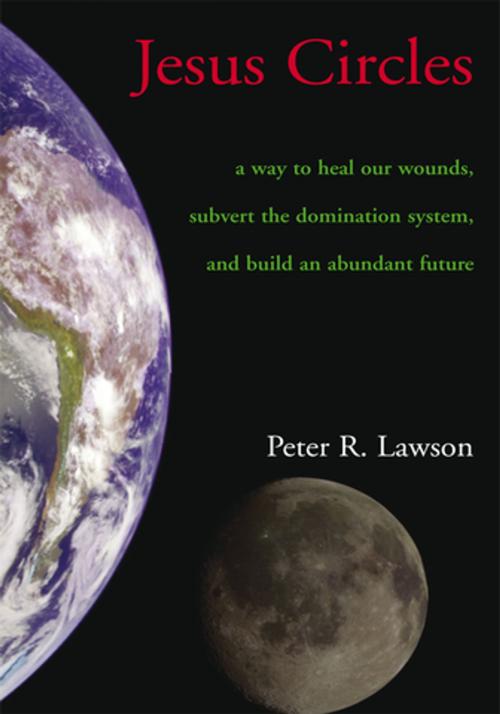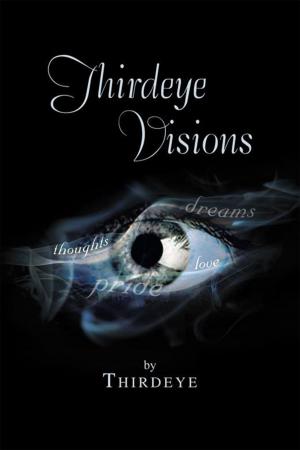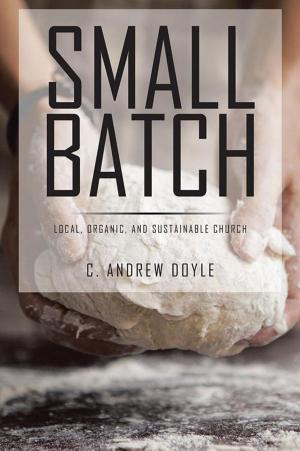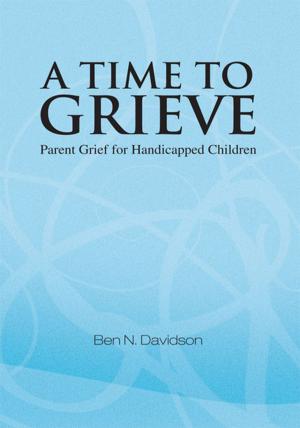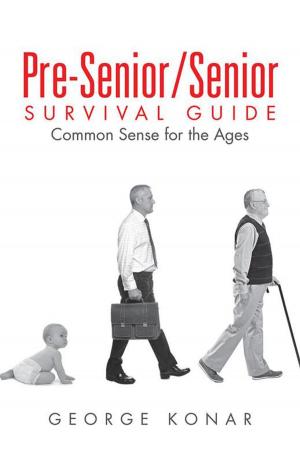Jesus Circles
A Way to Heal Our Wounds, Subvert the Domination System, and Build an Abundant Future
Nonfiction, Religion & Spirituality, Christianity, Christian Life| Author: | Peter R. Lawson | ISBN: | 9781462809219 |
| Publisher: | Xlibris US | Publication: | July 13, 2004 |
| Imprint: | Xlibris US | Language: | English |
| Author: | Peter R. Lawson |
| ISBN: | 9781462809219 |
| Publisher: | Xlibris US |
| Publication: | July 13, 2004 |
| Imprint: | Xlibris US |
| Language: | English |
In Jesus Circles.......
..........Peter Lawson says it is possible to imagine and create a new social order in which the abundance of the earth is justly shared and the domination system with its inherent reliance on violence is no longer sanctioned .
The new social order is based on the movement Jesus started among marginalized peasants in Galilee; a movement that undermined the Roman/ Judean system of domination and violence. His program incarnated an alternative community in which oppressed common folk experienced healing, wholeness and abundance even in the midst of a system of extreme violence.
Many of us have moved away from the notions of God that prevailed in the ancient world. Many of us have found that even those concepts of God that survived the enlightenment no longer fit the demands of 21st century thought and culture. We long for a progressive religious expression that recognizes many religious paths to the life of abundance we all desire and that concepts of spirituality are culturally conditioned.
Those of us who come out of a Christian heritage find we can no longer say the creeds in a meaningful way. We cant accept or ascribe to beliefs about a blood sacrifice that appeases an angry God. We are offended by the human violence and the violence of God that pervades the Bible. We no longer take the Holy Scriptures as definitive historical documents and rightly treat them as fictionalized accounts of (sometime barely discernible) events. Yet out of what we reject, the powerful figure of a Galilean sage has emerged and seized our imaginations.
Many of us find ourselves liberated by the recent Third Quest for the Historical Jesus and the Biblical scholarship which follows the same strategies.. Through sophisticated developments in archeology and cultural anthropology in the last half of the 20th century, we know more about the politics, economics and cultural life of the Mediterranean basin in the 1st century CE than its inhabitants could know. We now have, for example, spectacular new awareness of the sociological structure of agrarian societies
It appears that most of the literature of the New Testament is the interpretive works of upper class men (sic) trying to fit the radical Jesus into their Greco-Roman cultural frame. Listen to these words In the half-century before the creation of the first narrative gospel - the Gospel of Mark ... (Jesus) a visionary sage was transformed from an iconoclast to an icon and his radical vision of Gods domain dissipated in debates about divinity.
With all of this scholarship we can now look behind the editorial embellishments of early Christian literature. We can peer deeply into Jesus message and mission in the context of his own social reality. We know, better than ever, how his radical stance so mightily offended the ruling powers of Galilee and Judea that they sought his assassination. We know how his healing and teaching enthused and energized marginalized Jewish peasants in Galilee.
If we are to have any worthwhile life in our own world, dominated as it is by violence, we must begin to explore ways to embody today the nonviolent message and program of Jesus.
Our first task is to get as many of the interpretive notions of those upper class literate Gospel writers out of the way so we can see Jesus as he himself spoke and acted, knowing our vision will still be a bit blurry.
Because the differences between the first-century culture of the Mediterranean world and ours of the twenty-first century are radical, our second task is to look at and listen to the specific things Jesus said and did in the context of his culture. That will enable us to unpack the impact
In Jesus Circles.......
..........Peter Lawson says it is possible to imagine and create a new social order in which the abundance of the earth is justly shared and the domination system with its inherent reliance on violence is no longer sanctioned .
The new social order is based on the movement Jesus started among marginalized peasants in Galilee; a movement that undermined the Roman/ Judean system of domination and violence. His program incarnated an alternative community in which oppressed common folk experienced healing, wholeness and abundance even in the midst of a system of extreme violence.
Many of us have moved away from the notions of God that prevailed in the ancient world. Many of us have found that even those concepts of God that survived the enlightenment no longer fit the demands of 21st century thought and culture. We long for a progressive religious expression that recognizes many religious paths to the life of abundance we all desire and that concepts of spirituality are culturally conditioned.
Those of us who come out of a Christian heritage find we can no longer say the creeds in a meaningful way. We cant accept or ascribe to beliefs about a blood sacrifice that appeases an angry God. We are offended by the human violence and the violence of God that pervades the Bible. We no longer take the Holy Scriptures as definitive historical documents and rightly treat them as fictionalized accounts of (sometime barely discernible) events. Yet out of what we reject, the powerful figure of a Galilean sage has emerged and seized our imaginations.
Many of us find ourselves liberated by the recent Third Quest for the Historical Jesus and the Biblical scholarship which follows the same strategies.. Through sophisticated developments in archeology and cultural anthropology in the last half of the 20th century, we know more about the politics, economics and cultural life of the Mediterranean basin in the 1st century CE than its inhabitants could know. We now have, for example, spectacular new awareness of the sociological structure of agrarian societies
It appears that most of the literature of the New Testament is the interpretive works of upper class men (sic) trying to fit the radical Jesus into their Greco-Roman cultural frame. Listen to these words In the half-century before the creation of the first narrative gospel - the Gospel of Mark ... (Jesus) a visionary sage was transformed from an iconoclast to an icon and his radical vision of Gods domain dissipated in debates about divinity.
With all of this scholarship we can now look behind the editorial embellishments of early Christian literature. We can peer deeply into Jesus message and mission in the context of his own social reality. We know, better than ever, how his radical stance so mightily offended the ruling powers of Galilee and Judea that they sought his assassination. We know how his healing and teaching enthused and energized marginalized Jewish peasants in Galilee.
If we are to have any worthwhile life in our own world, dominated as it is by violence, we must begin to explore ways to embody today the nonviolent message and program of Jesus.
Our first task is to get as many of the interpretive notions of those upper class literate Gospel writers out of the way so we can see Jesus as he himself spoke and acted, knowing our vision will still be a bit blurry.
Because the differences between the first-century culture of the Mediterranean world and ours of the twenty-first century are radical, our second task is to look at and listen to the specific things Jesus said and did in the context of his culture. That will enable us to unpack the impact
